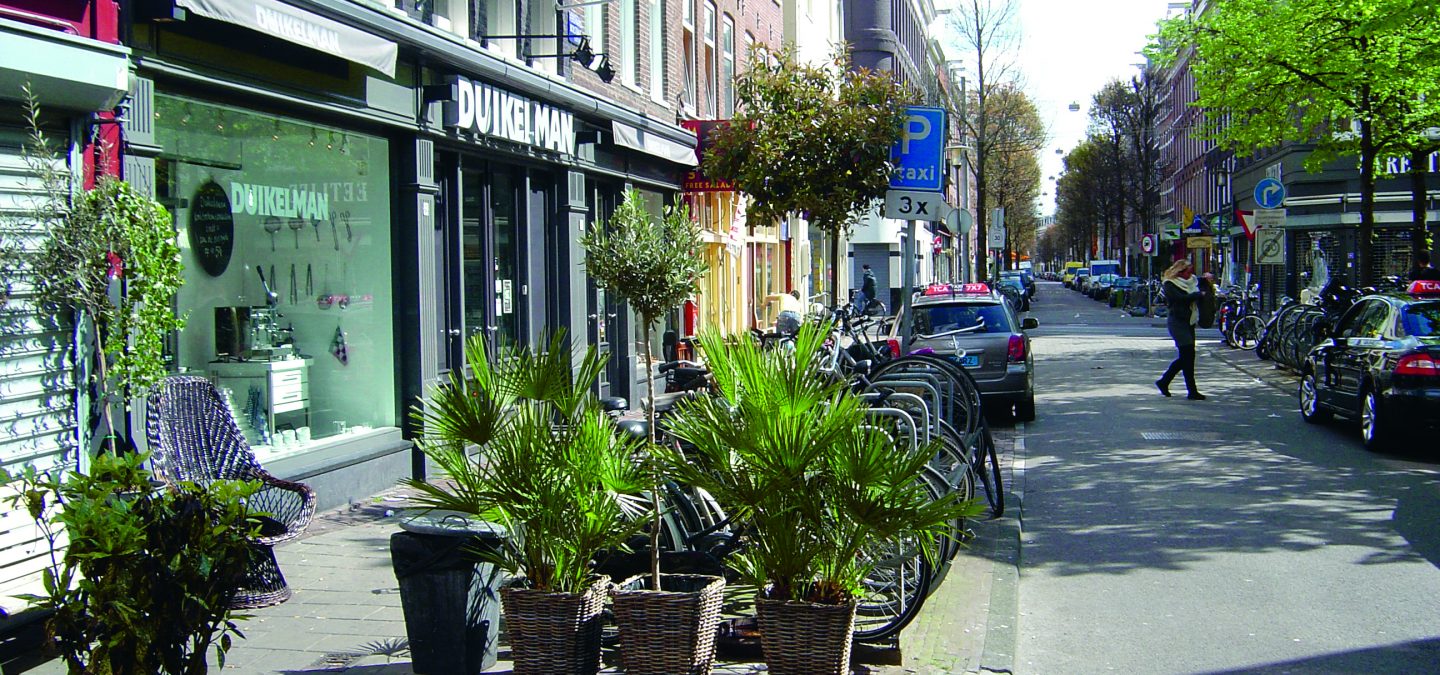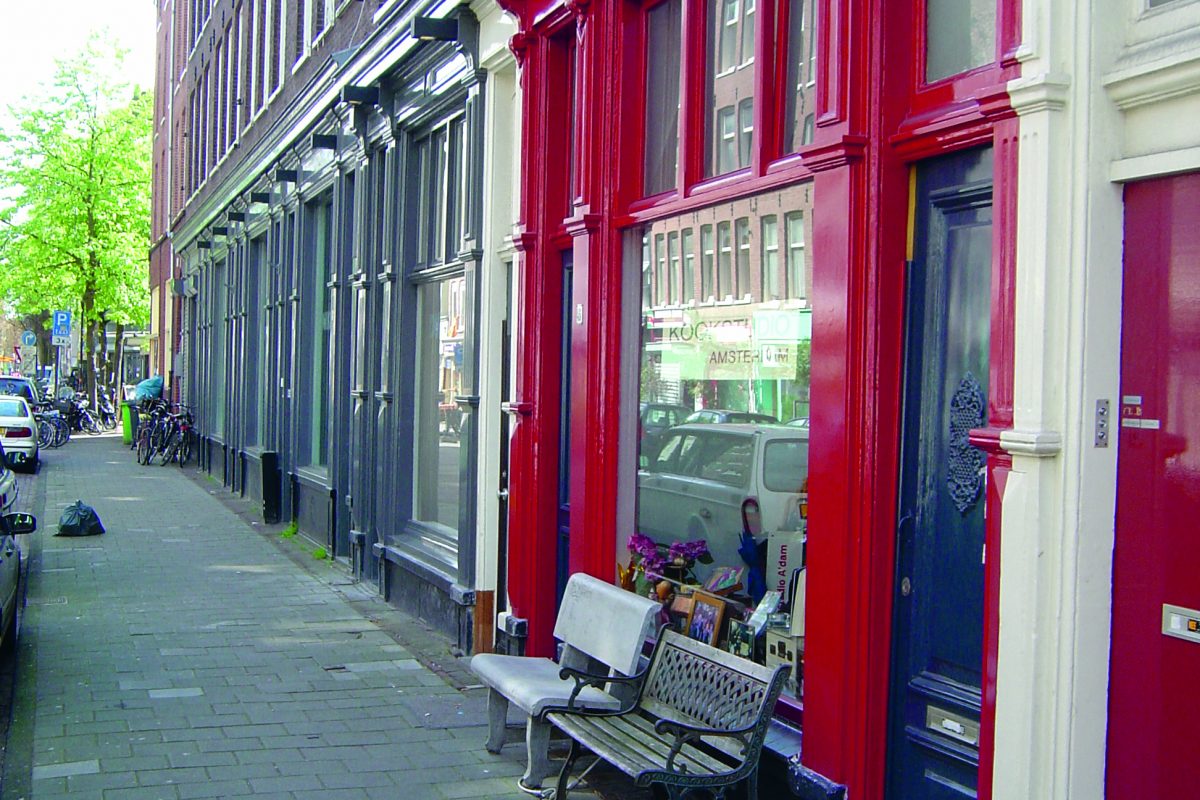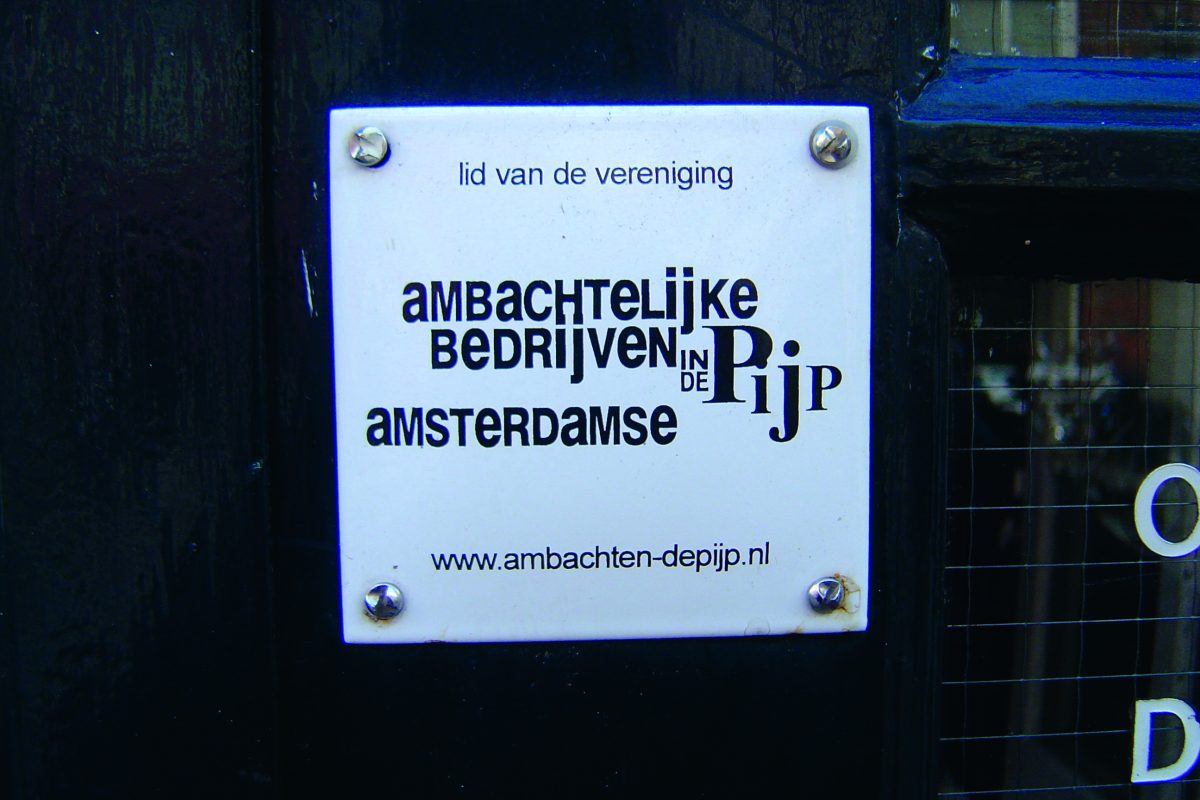
Keep up with our latest news and projects!

Our shop Duikelman is a renowned family-based enterprise in kitchen and cooking supply in the Pijp, a former blue collar quarter near the inner-city of Amsterdam which gentrified strongly since the late 1970s / early 1980s. Unlike many other specialized shops (with a large and wide spread amount of clients) that moved to the outskirts of the city in order to be optimally accessible by car, we decided not to move. Instead we associated and cooperated with colleagues in Rotterdam and The Hague. At the same time we committed ourselves with the direct neighbourhood being our first clients: events, street dinners, etc. We believed in the regeneration of the neighbourhood and the strengths of ownership and control over real estate. Not being dependent on project developers and landlords is a precondition to develop a long term business model and investment strategy. In doing so, we see a positive effect in the plinth of the rest of the streets.
 © Jan van Teeffelen
© Jan van Teeffelen
 © Jan van Teeffelen
© Jan van Teeffelen
We strongly believe in diverse and mixed urban areas with a concentration of specialty shops, as you can see in the old quarters of Paris. Areas that are not depending on maximum car accessibility but that are beloved by people on foot and bike who like the buzz of an urban lifestyle and by visitors who enjoy this as a special experience.
The Pijp is now in the midst of a long lasting and major infrastructural project for the new subway-line. Not being a big fan of this type of city improvement, we now see the advantages and chances for the next future: a greater catchment area, more tourists and a better connection with adjacent hotspots like the Museum quarter. Tourism is a growing market in cities, so it is in the Pijp – foreign magazines refer to it as a Quartier Latin. Attractions like the Heineken Brewery, the Albert Cuyp market, daytime restaurants and small shops have to be cherished while the tourist traps (souvenir shops, money change etc.) should be avoided.
The Ferdinand Bolstraat is developing as main retail axis, with a collection of strong and well known chain stores and restaurants, as a magnet for the mainstream public. This type of development and stores is a precondition for the shops on the adjacent small streets with a lower level of rent and/or private ownership: small scale, diverse, and specialized. And those shops are also service-oriented towards clients and people who live in this dense and urbanized world.
I’d like to make a remark about the popular idea of a necessity for flexibility in (the use of) property and the levels of rent. Project developers and landlords on a speculative basis tend not to think on a long term. Often they aim for the highest return on their investments, resulting in tenants of the well-known kind. Real estate owners should be involved in an early stage in new plans and strategies in order to convince them that a long-term vision is better for everyone. Also cooperation with the authorities is important in order to let the small-scale production and service companies return, that are very important for an urban quarter like the Pijp. This requires a more liberal application of licenses; otherwise every available ground floor space on the adjacent streets will be transferred to housing.
So the point is to find a good mix and cooperation between entrepreneurs (chains and specialists, shopping and production, daytime and evening oriented, for locals as well for visitors), and people who live and work in the area. But cooperation and joining forces is very difficult, because everybody tends to go for their personal interests and hardly see the common challenges and goals. Entrepreneurs should be pro-active, take positions in the development process of a neighbourhood in advance, and cooperate in this development. An ‘intermediate agency’ or ‘shopping street manager’ can assisted of this.
These kinds of recommendations will lead to strengthen the ‘soul’ of the Pijp and will result in an interesting and distinguished image and performance at eye level in the street.
Interested? Join The City At Eye Level and share your story!
Discover more